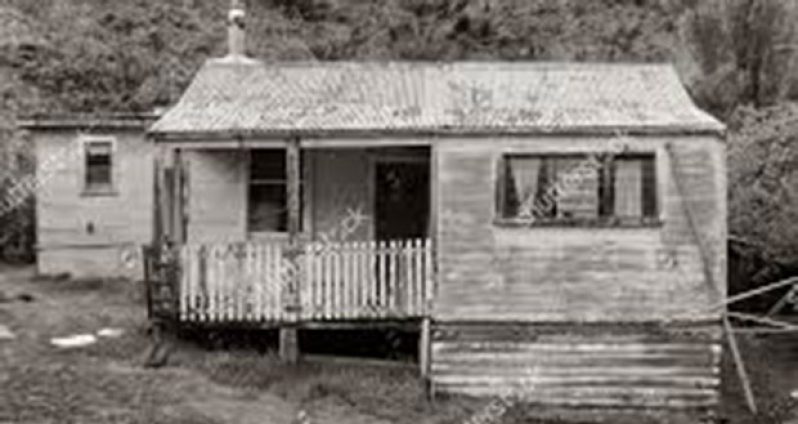By Neil Primus
MA LOTTIE was the oldest person in our village of Buxton; she was 103 years old. She was kind, generous and good-humoured. Everyone loved and respected her. Ma Lottie lived alone in a cottage at the very end of the village. All of her five children had left the village for the brighter lights of the city. None of them even visited her anymore. She was left to fend for herself.Although she missed them, she was not lonely; the villagers saw to that. Every day, the women would take turns to cook and wash for her. She insisted that she be allowed to clean the house herself. She was happy when active, or so it seemed.
The children had to pass her house on the way to school, or on the return journey. We were all trained to show respect for our elders, and Ma Lottie was special among them. Whenever we passed by, we would shout at the top of our voices:
“Morning Ma Lottie!” We had to shout to be heard, because she was going deaf. Without looking out, she would reply in a strong voice that belied her age: “Morning sweetheart!” I loved it when she called out, “Sweetheart.”
One rainy day in December, a week before Christmas, Ma Lottie passed away. News of her sudden death spread quickly, and as shocked as we all were, plans commenced immediately for her wake and funeral. Urgent messages were sent to all of her children, who turned up with her grandchildren, whom she had never met. The women cooked and cleaned for the wake that night. The men saw about the building of the casket and all other funeral arrangements.
We had no electricity in the village, so she had to be buried the next day. That evening, the entire village gathered at her home. There were so many people there, that the majority of them were forced to remain outside. That suited me fine.
The wake was a hum of activity. Inside the house, some of the women were busy preparing meals for all those present. Pastor Barker had gathered about ten hapless villagers, and was expounding on the evils of sin; needless to say, they endured this with some resignation, because they were the older folks, and were not nimble enough to flee.
On the veranda, two groups of men were involved in animated games of cards and dominoes. Rum was passed around, and this helped to give their activity much-needed impetus. They were quite oblivious to what was going on around them.
In the yard, under a bright moonlight, some other men danced the limbo and drank rum. My mum and three other women were sharing out coffee, biscuits and juice. The smaller children sat in a group, chattering and playing. I was not among them. Papa John told stories to the teenagers who seemed to be enjoying it. Girls clung to boys at scary parts of the tale, and seemed only anxious for them to arrive. The yard was lit up by a number of flambeau lamps made by pouring kerosene oil into a bottle and using a piece of cloth as a wick. Logs made adequate benches for some.
The huge oak trees that surrounded the house cast a large shadow that seemed menacing and alive. The thump! thump! thump! thumping of the bongo drums mirrored my racing heart as I sat apart from everyone, wide-eyed and fascinated, absorbing everything.
What really struck me as odd, however, was the fact that some of the most unlikely people in our village were smiling and speaking to each other. Pastor Baker was in deep conversation with Papa Cuffy, who was his sworn enemy. He had admonished Papa Cuffy on a number of occasions for leading his flock astray. You see, Papa Cuffy was the village healer and witchdoctor. The Pastor hated the fact that when his faithful went to him for help and got none, they would go to the village healer for his assistance. There had always been some animosity between them. Now they seemed to be buddies.
Jane, our next-door neighbour, was chatting with my mum while they worked. Only yesterday Jane had employed the foulest language to give my mother ‘a piece of her mind’, as she described it. She accused my mother of stealing one of her fowls to feed her nine ‘hungry-belly children’. In tears, mum denied it, and vowed never to have anything to do with her again.
It was later discovered that Jane’s teenage son had stolen it to cook with his friends. Jane had refused to apologize. Yet, here they were, like long-lost cousins.
When all the rum and food was finished, those not too drunk to walk went home. Some slept where they were. At mid-morning the next day, Ma Lottie was quietly laid to rest. The whole village turned out to pay their last respects to one of their own. Pastor Baker did a part of the ceremony, and then gave way to Papa Cuffy, who ended it with a traditional chant and blessing.
Somehow or the other, even in death, Ma Lottie was able to bring an entire village together. It seemed like a fitting farewell for her.



.jpg)










